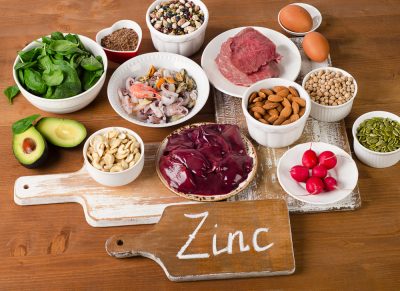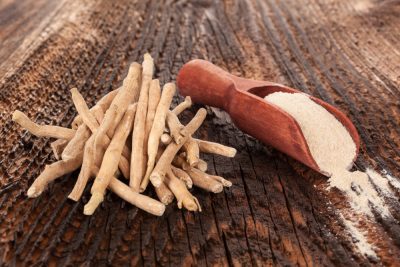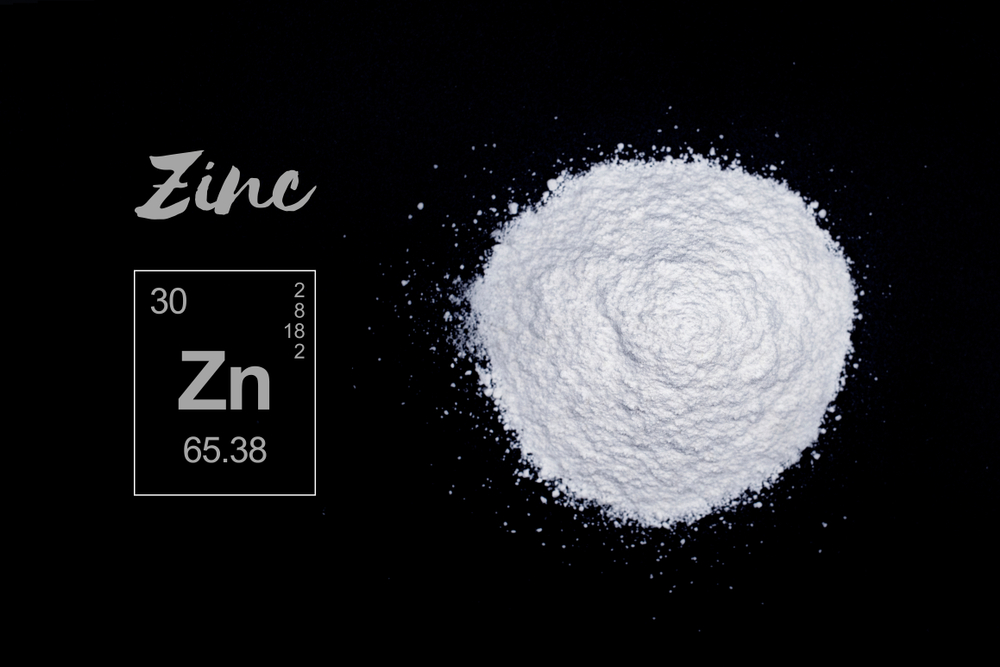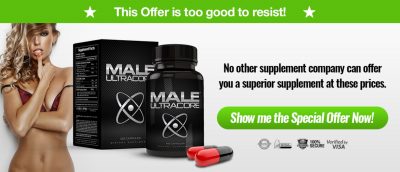Zinc is one of the most important minerals in the body, especially when it comes to sexual health. If you look at zinc purely from a reproductive standpoint, it may be the most important.
If zinc breaks down, it can close off or even suppress the production of the sex hormones. The human body cannot produce zinc, nor can it adequately store it. The human body needs to get zinc either through our diet or through a dietary supplement.
Zinc is the second most important mineral in the body after iron. Each body’s requirement is different; as a general rule of thumb, only a small amount is needed.
In the case of the typical adult male, it approximately 11mg daily. Zinc allows for multiple processes in your body to function at peak capacity.
Not only is it vital in its role in immune response, but it also plays a crucial role in cell division and growth and development of the human body.
The impact of Zinc on T-levels
Zinc has a significant influence on the body’s testosterone levels. Certain foods that claim to be testosterone boosters all have one thing in common.
They have high levels of zinc in them. If a male is unknowingly not getting enough zinc, this can result in a deficiency in testosterone levels.
Low levels of testosterone can have drastic impacts on the body’s ability to function. It can lead to an increased likelihood of the body holding onto fat, a reduction in strength and muscle, and, in some cases, erectile dysfunction.
Low zinc levels have also been shown to have an effect on the body’s ability to produce sperm, and calls also cause sperm defects. A number of studies have been carried out in order to establish just how close the relationship between zinc and testosterone is.
One of these studies removed zinc from a group of men for 20 weeks. The results showed a drastic reduction in testosterone levels, with their hormone level dropping by 75%.
Another similar study took a range of elderly males who had a zinc deficiency and supplemented their diets for six months. Twenty-four weeks later, following zinc supplementation, their testosterone levels had fallen within the average range for adults again.
The relationship between zinc and testosterone is comparable to that of testosterone and vitamin D.
Zinc is a key determinant of adequate hormonal levels
 If you go a few levels deeper, zinc determines testosterone levels and has a significant impact on other hormones. A lot of processes in the body are dependent on sufficient zinc levels.
If you go a few levels deeper, zinc determines testosterone levels and has a significant impact on other hormones. A lot of processes in the body are dependent on sufficient zinc levels.
If they do not have enough zinc they either slow down these processes or shut them off completely. One of the processes that are heavily regulated by zinc levels in the body is thyroid function.
If there isn’t enough zinc in the body thyroid function is heavily impacted and other hormones that the body needs aren’t produced.
All the processes in the body are tightly linked. If something negatively influences thyroid hormone production, it can lead to a reduction of testosterone.
If an athlete exercises heavily, thyroid hormone and testosterone production are depleted. If you treat this with a zinc supplement (or a supplement that contains zinc), this can be avoided.
Zinc also has a whole range of other bodily benefits. Zinc plays a vital role in fighting inflammation in the body. Zinc can limit oxidative dress and cellular damage. Its role in the body is an antioxidant balancing free radicals.
Proper zinc levels can also help boost the body’s immune system by promoting T cell production and development.
Meat eaters should have no issues obtaining their recommended daily intake of zinc. Oysters or Beef are ideal sources of zinc. Some vegans or vegetarians might find it challenging to get enough zinc from their diet alone.
There are many other good zinc sources, such as dark chocolate and certain nuts. A lot of cereals have added zinc in them. If you still struggle to get enough zinc from your diet alone, there is a range of zinc supplements available.
A generic multivitamin should be enough to hit your RDA. Specific individuals with underlying health conditions may need to contact a healthcare professional for advice. Conditions include celiac disease, amongst others.
Is it beneficial to take a testosterone supplement?
Testosterone is always associated with being the manliest of all the hormones. It is made mainly in the testicles, and its role is to develop “masculine” physical characteristics such as muscle development, body hair, sex drive, and bone strength.
Naturally, it also plays an essential role in the development of male sexual characteristics and fertility. As men age, their body’s ability to produce testosterone decreases. This ability decreases by 10 percent year on year.
Low testosterone correlates with a reduction in libido, increased occurrences of ED and heart disease. It is no secret that overall testosterone levels in American men have been steadily declining for 40 years.
This decrease in testosterone levels may be attributed to the increased body fat levels of the general population. The higher the body fat levels, the lower the amount of testosterone believes it needs to make.
Vitamin D
If you think that you are experiencing abnormally low testosterone, it is important to talk to your nearest healthcare professional and decide on the best course of action and what works for you.
There are many minerals and supplements you can take, which naturally increase testosterone levels in the body. Supplementing with Vitamin D showed an increase in testosterone levels in men who had a vitamin D deficiency.
The recommended daily amount lies between 600 and 2000 IU of Vitamin D; this can be had through eggs or milk, sunlight, or supplements. Vitamin D is a vital vitamin as it is responsible for bone health.
Magnesium
Magnesium plays a crucial role in bone structure and regulating muscle function. Supplementing your diet with 400 to 430 mg of magnesium per day has increased testosterone levels.
Recommended magnesium intake can be obtained through diet or a combination of a proper diet and an assist from a dietary supplement.
Zinc
Zinc is an essential nutrient for boosting your testosterone.
It has been shown that testosterone levels were increased in men who were previously experiencing a Zinc deficiency by supplementing with zinc. The recommended daily amount of zinc is approximately 11 mg per day.
Ashwagandha
 Ashwagandha is a traditional medicinal herb that has been used for hundreds of years. It is classed as being an adaptogen, which helps the body to cope with stress.
Ashwagandha is a traditional medicinal herb that has been used for hundreds of years. It is classed as being an adaptogen, which helps the body to cope with stress.
In one particular study, men who had high body fat levels were given the herp over 16 weeks and showed a dramatic 15% increase in their body fat levels.
Another study found that supplementing with Fenugreek leads to an increase in testosterone levels and the incidences of morning erections.
One testosterone booster supplement, Male UltraCore, contains a combination of some of the most beneficial organics such as KSM-66 (a highly potent strain of ashwagandha), as well as industry-leading extracts zinc and magnesium aspartate.
It’s one of the best options in the market today if you are looking for some incremental gains in the testosterone department.
Of course it goes without saying that any plans you have of going on a testosterone booster should first be discussed with your primary healthcare provider before taking any further action.
Is testosterone replacement therapy an option?
Testosterone replacement therapy is one of the most well-known methods of treating low testosterone. It is thought to have many benefits, one of which is that it has been known to rescue sperm count.
It can also tell your body to slow down the production of other hormones such as LH and FSH. There is a risk of developing a dependency on TNT, but it works in the vast majority of cases for men experiencing ED.
However, it must be noted that testosterone replacement therapy is an expensive procedure that doesn’t guarantee the desired results as far as its effectiveness is concerned.
It’s not always the panacea that it is often marketed to be. You may want to consider other options before getting testosterone replacement therapy.
If you feel you are experiencing problems with testosterone, it is essential to contact your healthcare professional. Your doctor will help you make the right decision based on the right battery of tests required to make a proper diagnosis.
If your testosterone levels are low, your doctor may recommend a testosterone supplement to help you with your health concerns.








COMMENTS